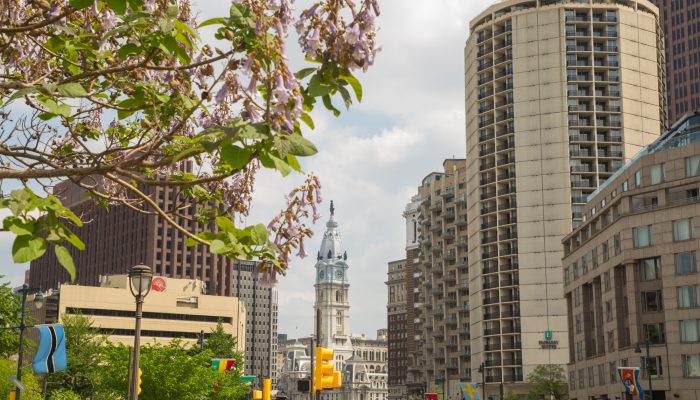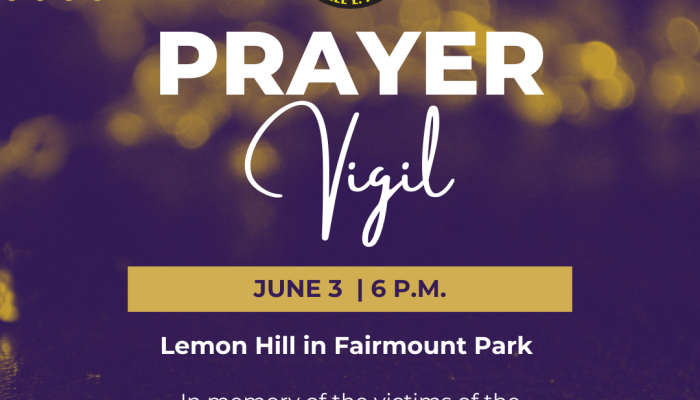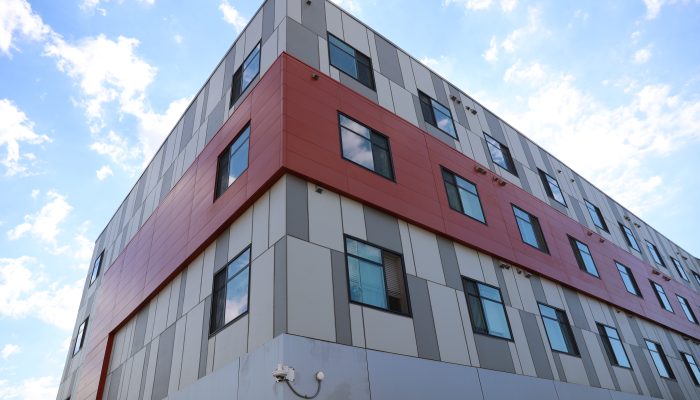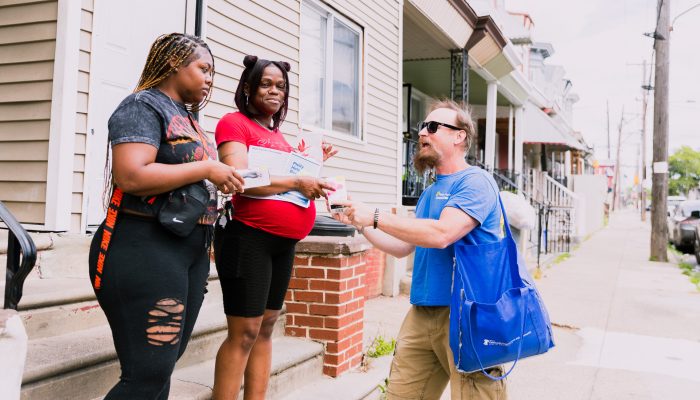In 2020, Philadelphia lost 447 people to gun violence – the most gun related homicides in 30 years. With 125 people killed and 546 nonfatal shootings since the start of the year, 2021 is on track to be the worst year on record. We must expand our solutions to match the scale of the problem.
During this heartbreaking increase in deadly gun violence across our city, the Kenney Administration is sharing the urgently needed Spring 2021 Update to the Philadelphia Roadmap to Safer Communities five-year gun violence reduction plan. The update also outlines key investments that Mayor Kenney is proposing in his FY22 Budget and Five-Year Plan.
The Spring 2021 update to the Roadmap was informed by the challenges of the COVID-19 pandemic, activism following the deaths of Black Americans at the hands of police, and our nation’s reckoning with decades of systemic racism.
Updates to the Roadmap include:
- Expanded violence interruption tactics
- Improved coordination of social services in areas with high levels of violence
- Expanding the public health approach to violence prevention and reduction
- Greater community voice in the City’s public safety work
How we can end Philadelphia’s gun violence epidemic
By delivering critical preventions and interventions, we can reduce shootings and gun-related homicides, and achieve the four key goals of the Roadmap to Safer Communities:
- Connected and thriving young people.
- Strong community engagement.
- Coordinated city services.
- Safe and healthy neighborhoods.
In 2021, we will strengthen the public health approach that has guided our work over the last two years:
- Better opportunities and social services for individuals highly at-risk
- More quality of life services for communities.
- Swift and predictable consequences for those engaged in violence who do not want help.
- Stronger community engagement with tools to increase long-term resiliency
Key initiatives of the Roadmap
Gun violence is a complicated and complex problem. In order for the City to effectively address and stop gun violence, the Roadmap to Safer Communities coordinates public, private, nonprofit, and community partners to end gun violence.
These programs, initiatives, and interventions work in concert with each other to help the communities and individuals affected by gun violence, as well as directly interact with those perpetuating it.
Group Violence Intervention
With Group Violence Intervention, high-risk individuals are called into a meeting and are told a simple message: the violence must STOP. If it continues, every legal tool available will be used to ensure they face swift and certain consequences.
Individuals are simultaneously connected to social services, employment, and community support to assist them in changing their lives. Since its launch in August 2020, 36 people have used its supportive services on their way to choosing a different path.
This model led to a 35 percent reduction in gun violence in South Philadelphia in 2013-14, and the most successful of these programs have reduced violent crime in cities by an average of 30 percent.
Community Crisis Intervention Program
The Community Crisis Intervention Program (CCIP) is a violence prevention strategy that uses credible messengers from neighborhoods vulnerable to gun violence to engage and disrupt violence by reducing tensions and mediating conflicts among those most likely to be victims or perpetrators of gun violence.
Since its launch, CCIP made 3,866 home visits and responded to 910 incidents. Its teams have connected victims and their families with needed services and support, while building relationships with at-risk men and women with the goal of reducing the likelihood that they become a victim or perpetrator of gun violence.
Operation Pinpoint
Philadelphia Police Department’s Operation Pinpoint identifies a small number of blocks in an area that have become violence hotspots and uses data and intelligence to adjust its law enforcement approach in that area, such as:
- Frequency of foot patrols.
- Location of cameras.
- Partnerships with community leaders.
In 2019, shootings were down 15 percent in Pinpoint areas while citywide shootings were up 5 percent. In 2020 with COVID complicating the implementation of these initiatives, shootings were up 44 percent in Pinpoint areas compared to 2019 while citywide shootings were up 54 percent.
In 2021, Operation Pinpoint will expand citywide to 45 areas, covering 8.5 percent of the city.
Environmental Changes
Environmental changes, like fewer blighted buildings, cleaning abandoned lots, and better lighting increase a sense of safety in a neighborhood and connectedness among neighbors, and reduce the locations where illegal guns are stored and where illegal activity occurs.
In 2019 and 2020, 160 properties were cleaned up and 1,046 unsafe buildings were demolished or clean and sealed in focus areas.
Targeted Community Investment Grants
The Targeted Community Investment Grants program backs community-based violence prevention activities that support public safety and build a stronger sense of community.
Over the last two years, this initiative has funded a total of 129 projects with an estimated combined award of $1.9 million.
- 88 percent of participants in the funded projects said that the programs made them feel safe in their communities
- 96 percent felt that the program gave them an opportunity to build more trusting relationships in their communities.
Building on our Progress
In addition to the efforts listed above, here are some highlights from our gun violence prevention work in the last two years that we’ll continue to build on:
Interventions focused on before violence occurs
Injury Prevention Program
The Philadelphia Department of Public Health established its Injury Prevention Program in 2019, focused on reducing and preventing gun violence. It recently launched an Injury Prevention Dashboard to provide up-to-date data on violence, accidental injury, and the social determinants of health that are linked to violence. This will help improve decision making and coordination across agencies taking on the violence crisis.
It also leads the Firearm Homicide and Nonfatal Injury Review team to identify opportunities to prevent firearm violence and death through in-depth cases review of victims of violence and their touchpoints with City and prevention agencies. Meetings review 4-6 cases in depth, identifying patterns and creating action items for change.
Advocacy efforts for strong laws
A critical tool to ending gun violence is stronger gun laws. The City is suing the Commonwealth for the right to pass local measures to reduce gun violence. The Kenney Administration continues to work with local, state, and federal partners to reduce the availability of firearms and close loopholes that enable guns to fall into the hands of those likely to engage in violence.
Reduce unnecessary involvement in the criminal justice system
Police-Assisted Diversion diverts those with low-level, non-violent offenders away from the criminal justice system and towards supportive, peer-based social services. PAD has expanded to all of the East Police Division.
The Juvenile Expedited Release Program allows youth with minor allegations to be released quickly after arrest, instead of being held in cells.
The Youth Arrest Reform Project developed procedures to encourage police and prosecutors to consider diversion to services, instead of juvenile court.
Interventions focused on responding during violence
Better coordination for safe surrender of violent offenders
The Joint Warrant Apprehension Taskforce brings together Public Safety agencies to pursue the city’s most violent offenders ages 16 to 34 whose whereabouts are unknown with the goal of stopping future violence. A two-month pilot resulted in the arrest of 7 high-risk individuals and recovery of 3 illegal firearms.
Coordination with Attorney General to target illegal guns
Led by the PA Attorney General and the District Attorney’s Office, the Police Department is partnering to target illegal firearms by investigating crime guns and tracing them back to where they were obtained to combat gun trafficking, straw purchases, and the movement of illegal guns as part of the Gun Violence Task Force.
In the last two years, this Task Force has resulted in 580 illegal guns recovered and 278 arrests.
Interventions for after violence has occured
Launch of Office of Reentry Partnerships and enhanced connections to services
The Office of Reentry Partnerships (ORP) was created to organize reentry efforts. ORP directly engaged with over 600 people to provide reentry information, support, and referrals for those who have returned to the community from incarceration during the pandemic and operated a Welcome Home Hotline, an emergency cash transfer program and emergency transitional housing during the pandemic.
Investing in what works and funding new initiatives
In 2021, we will redouble our work with these tools, investing a total of $18.7 million of additional funding in FY22 on anti-violence efforts for a total of $35.5 million of investment. Over the life of the FY22-FY26 Five Year plan, this is an additional investment of $70 million.
In addition to expanding on proven models, we will address key gaps in our current strategy. Some of these investments include:
- Behavioral health crisis tools such as implementing a citywide 24/7 911 Triage & Co-Responder Program
- Community engagement tools to elevate youth voices, and include residents in decision-making on how to tackle challenges
You’ll be able to read more about these key investments and programs as part of Mayor Kenney’s FY22 Budget Proposal and Strategic Five-Year Plan.
The Roadmap to Safer Communities is now led by the new Office of Policy and Strategic Initiatives for Criminal Justice and Public Safety (CJPS), which brings together:
- Office of Violence Prevention
- Office of Criminal Justice
- Office of Reentry Partnerships
- Town Watch Integrated Services
CJPS is focused on uplifting solutions to reduce violence, enhancing the bridge between neighborhoods and City government, amplifying support for returning citizens and families impacted by the criminal justice system, and developing and implementing reforms in an equitable fashion.




